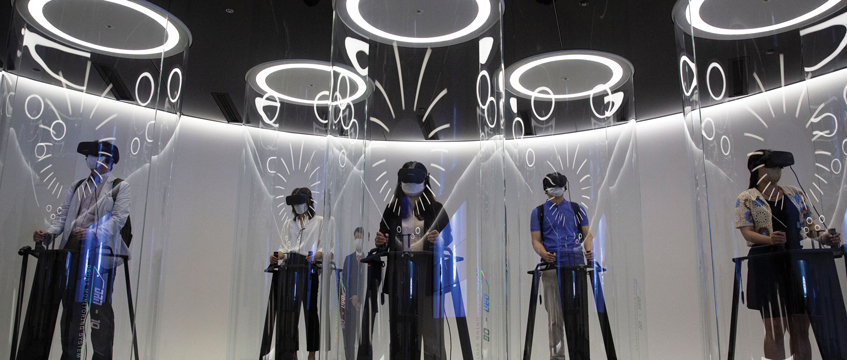COMMENT: Faisal Butt’s commentary on the metaverse a few weeks ago got me thinking. As the founder of Pi Labs, a global venture capital firm specialising in proptech, Butt shared an interesting but not surprising statistic – 54% of mid-late career real estate professionals expect the metaverse to have no impact at all on the sector.
It’s clear that plenty of industry leaders have chosen to view the metaverse as over-stated, Gen Z hype. This couldn’t be further from the truth. The media is awash with commentary, but what does the metaverse really mean for the built environment?
It’s naivety on the part of our industry to think we aren’t already living and working within the beginnings of the metaverse. A useful comparison can be made here with the internet. Back in the embryonic stages of the internet, business owners and organisations didn’t understand why they needed to buy their domain name. They questioned where the value was, and why they should pay to own their own company name digitally. Today, the value of the internet is incalculable, but we shouldn’t forget that, much like the metaverse, it was born into a wave of cynicism.
Active participation
Simply put, the metaverse can be understood as a virtual space in which the physical interacts with the digital. It is the natural expansion of the internet, in which we can interact and interconnect with each other and objects. Where the internet is a space of passive observation, the metaverse is a space of active participation.
Truthfully, it’s not possible to demystify the metaverse completely. The actual nature of it is, by definition, mysterious and unknown – and continuing to evolve at a rapid pace. However, it is possible to share some indication of how it’s developing in our industry and the impact it will have.
In the past decade, we have seen an exponential rise in digital twins. Digital twins are well-established in sectors like aviation and engineering, but they’re starting to make a real impact on the built environment too. Entire cities are being digitally modelled as we speak, with the aim of enhancing decision-making and creating better spaces and places.
As an industry at the forefront of the metaverse, videogame software company Unity recently shared a brilliant definition of a digital twin as “a dynamic virtual copy of a physical asset, process, system or environment that looks like and behaves identically to its real-world counterpart”. The company went on: “A digital twin ingests data and replicates processes so you can predict possible performance outcomes and issues that the real world product might undergo.” As a virtual space for real world assets, digital twins are undoubtedly one of our industry’s first forays into the metaverse.
The concept of exchanging digital assets in a digital world can seem quite surreal from the outset, and examples such as the sale of Twitter’s first-ever tweet for $2.9m don’t make it any easier to understand its true value. But this ’digital land-grab’, in which many will scramble to buy in the digital universe the assets they own in the physical, will only continue to grow.
Don’t close the door
These examples beg the question – how can our physical assets be represented as digital? How can we monetise this? How should we protect our assets in the metaverse? It’s true that we may not understand everything about the metaverse right now, or all its true potential. But we sure as hell should be paying attention to it.
Real estate is one of the world’s largest asset classes, with huge potential for expansion into the metaverse. Why would we shut the door on this immense opportunity?
If you take one thing away from this piece, it should be that the metaverse is not hype. Nor was the internet, back in the 1980s. It’s real, it’s out there, and it’s already having a huge impact on our lives. By refusing to engage with it, we are in effect guaranteeing our own early retirement.
It’s impossible to be an industry leader unless you embrace the latest thinking and technology with open arms. I for one am not going to be left behind.
Bring it on.
Jason Hawthorne is founding director at Vu.City











